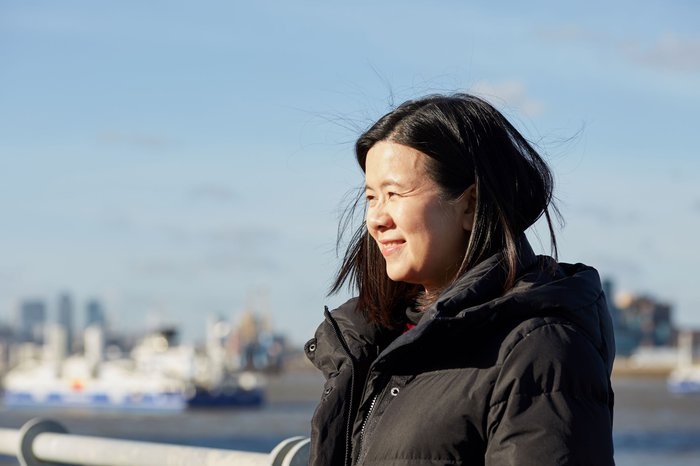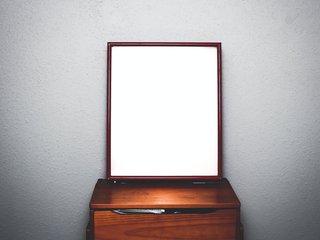Jacqueline’s story
How I’ve coped with changes to my body
Jacqueline, 45, was diagnosed with diffuse large b-cell lymphoma in 2017. She had chemotherapy and radiotherapy treatment and is now in remission.

Jacqueline, in remission from DLBCL, out walking in the city
When I first had symptoms – feeling lightheaded and breathless – I thought I had an infection that would go away with antibiotics. I ended up staying in hospital for almost two weeks having tests. I was desperately trying to go home as I wasn’t prepared to stay there.
When they told me I had lymphoma, I thought they had the wrong diagnosis – it was only when I saw my husband crying that I realised how serious it was. The doctors had my treatment plan in place quickly. I started chemotherapy in mid-May 2017. That was followed up with radiotherapy.
Life after treatment
At the beginning, I was just focusing on getting through the treatment. But for me, emotionally, it was actually harder after they declared that I was in remission. I felt neither very fit or very ill.
I am still living with the after-effects of chemotherapy and radiotherapy. The chemotherapy has damaged some of my nerves, so I don’t always know when I urgently need to go to the toilet. I have to rely on my other senses.
There were changes to my appearance, too. I have always been very slim, but when I went back to work after treatment, I gained around 20lbs within six months. My face was swollen and round, and my hair fell out during chemotherapy. I hated looking in the mirror – it just didn’t look like me.
Dealing with early menopause
My period stopped after my second round of chemotherapy. Both the nurse and doctors promised me that my period might come back. But it only came back once, two years later and hasn’t happened again. I had hormone tests and the doctors said I was peri-menopausal – which is the stage before the menopause.
I felt like I wasn’t a ‘normal woman’ because I didn’t have my period. I tried lots of things to fix it, like acupuncture and changes to my diet, but now I have come to terms with it.
Changing what I can control
I try and boost my confidence in my body by being active, eating the right things and sleeping well. I have three portions of fruit in the morning and try and eat lots of vegetables.
I go out for a walk every day if possible. At the beginning, I wasn’t very fit and I couldn’t walk for a long time. But even when I was at work, I would walk for half an hour at lunch.
If there is something important happening the next day, I find I get very nervous and can’t sleep. So I use relaxing bath and shower oil to help me wind down before bed. During the summer I even go for a walk around the lavender fields near where I live – the smell of the lavender really helps me relax.
Having counselling
I was offered counselling through the hospital while I was having treatment. I was sceptical at first, but friends and family encouraged me to go – and I still go now.
It’s good to be able to just express whatever I have on my mind, and counselling helped me come to terms with the loss of my period.
There was sadness inside me about the ‘lost time’ I have spent battling with cancer. But with counselling, I’ve been able to see that from a different angle and overcome some of that sadness.
Connecting with others
I did a six-week course at my local cancer centre with other people recovering from cancer, talking about our fears and concerns. It was good way to make new friends and we have stayed in touch.
I also joined a group online that’s for younger people who have had cancer. From time to time we meet up – we even had a Christmas party. There were about 30 of us in a crowded restaurant, we were getting some attention because we were the only people in there ordering non-alcoholic cocktails! It was great because I could talk to people I related to about my feelings without being judged.
Having hope
My tip for other people in remission is to be as active and eat as healthily as you can. It helps me mentally to feel that I am helping myself and that I have done all I can. Because I can’t control the rest.
Janssen-Cilag Ltd has supported Blood Cancer UK with funding for the production of this web page and others within the ‘Living well’ section. It had no influence over the content.

Coping with changes to your body
Learn more about why side effects have a big emotional impact too, and how other people have found ways to cope.
